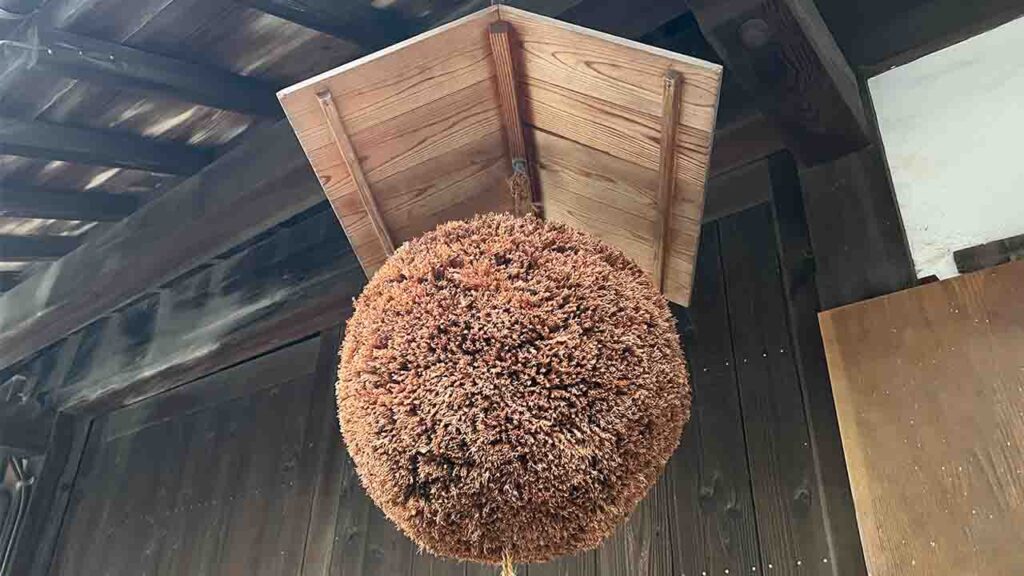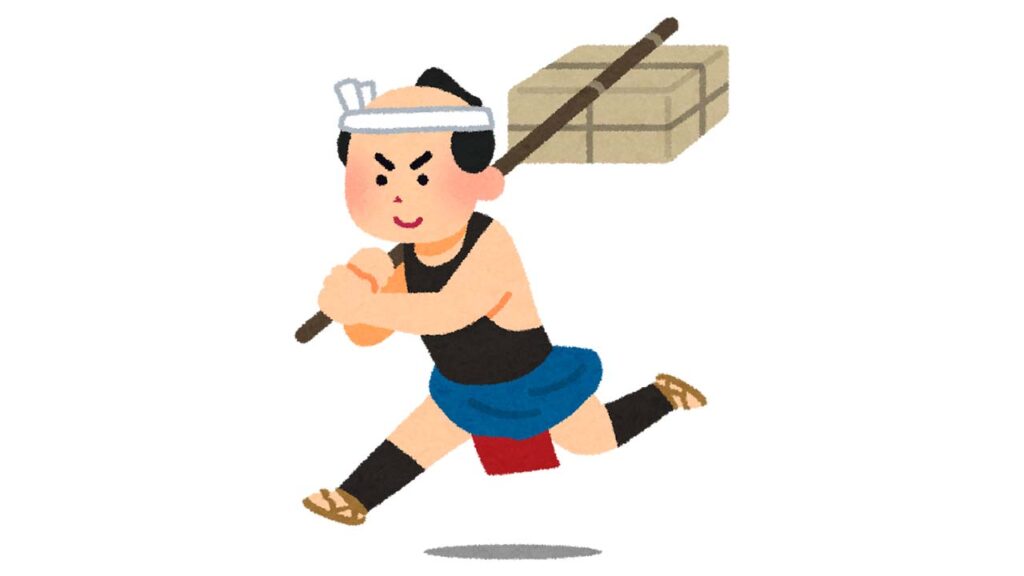For travelers strolling through Japan’s historic streets, few sights are more enchanting than the spherical bundles of greenery hanging above the entrances of traditional sake breweries. These distinctive ornaments are called Sugidama (杉玉), or “cedar balls,” and they hold centuries of cultural significance tied to Japan’s sake-making heritage.
What Is a Sugidama?
A Sugidama is a ball-shaped decoration crafted from the fresh needles of Japanese cedar (sugi) trees. Typically measuring 30–50 centimeters in diameter (much larger than often assumed), they are hung prominently above the entrances of sake breweries (sakagura) and specialty sake shops.
When first made, the Sugidama appears vibrant green, but over time, the needles dry and turn to a rich brown color. This slow transformation has long served as a subtle, natural indicator of the sake brewing cycle.
The Origins of Sugidama
While its precise origins remain somewhat mysterious, several theories explain how the Sugidama tradition began:
1. A Shrine to the Sake Deity
One widely accepted theory links the Sugidama to Ōmiwa Shrine in Nara Prefecture, one of Japan’s oldest Shinto shrines and the guardian of sake brewers. As cedar trees are sacred to the shrine’s deity, sake makers likely adopted the custom of hanging cedar branches to honor the gods and pray for a successful brewing season.
2. Practical Symbol for Freshly Brewed Sake
During Japan’s Edo period (1603–1868), when sake production flourished, sake breweries would display a fresh green Sugidama to announce that a new batch of sake was ready. As time passed and the ball naturally turned brown, it signaled the aging of the current stock, guiding regular customers on the freshness of available sake.
3. Early Marketing and Landmark
In a time before widespread literacy, the sight of a Sugidama served as a simple yet effective visual symbol identifying sake breweries. Much like a barbershop pole in the West, it became instantly recognizable to customers as a place where fresh sake was sold.
4. Cedar’s Natural Properties
Japanese cedar was also believed to protect sake due to its natural insect-repelling and antimicrobial properties, making it both symbolic and practically connected to sake storage.
The Changing Colors: Nature’s Brewing Calendar
One of the most poetic aspects of the Sugidama is how its changing color mirrors the passage of time and the brewing cycle itself:
- New green Sugidama: Hung at the start of sake brewing season (typically winter), announcing the availability of freshly pressed shinshu (new sake).
- Gradually browning Sugidama: As months pass, the aging cedar needles reflect the aging of the sake.
- Fully brown Sugidama: Signifies that the fresh batch is now fully matured or sold out.
Though modern sake production is more complex and available year-round, many breweries still preserve this seasonal visual cue as a cherished tradition.
Sugidama in Modern Japan: Tradition Meets Symbolism
Today, Sugidama continue to serve as cultural markers rather than functional indicators of sake freshness. Even in urban settings, you may spot them hanging outside specialty sake shops or high-end izakaya as proud symbols of authentic sake heritage.
For many breweries, crafting and hanging a Sugidama remains a deeply symbolic ritual—part of the opening ceremonies that mark the start of each brewing season. Some breweries even invite visitors to witness the hanging of the new Sugidama each year, blending craftsmanship, spirituality, and celebration.
A Living Icon of Japan’s Sake Culture
Beyond its role in commerce, the Sugidama embodies many core aspects of Japanese aesthetics and spirituality:
- Respect for natural materials and their seasonal transformations.
- Quiet visual symbolism understood through subtlety rather than explicit signs.
- The fusion of Shinto beliefs, craftsmanship, and local tradition.
Its enduring presence offers visitors a chance to witness a small but meaningful part of Japan’s living cultural landscape.
Summary
The Sugidama is far more than just a decoration — it is a living symbol of Japan’s deep sake-brewing tradition, spiritual connection to nature, and refined sense of seasonal rhythm. Whether encountered in a rural brewery or a downtown sake shop, these cedar spheres invite us to appreciate both the art of sake and the quiet elegance of Japan’s enduring cultural symbols.
The next time you spot a Sugidama gently swaying in the breeze, take a moment to reflect on the centuries of craftsmanship, devotion, and seasonal awareness embodied in this humble ball of cedar.


